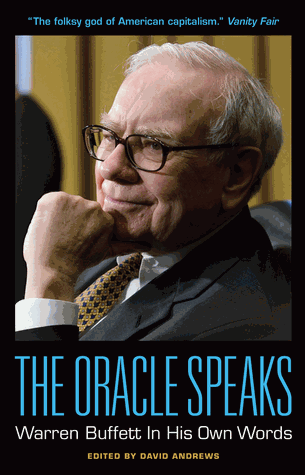StrategyDriven Editorial Perspective – Gather Ye Sugar Plums While Ye May; Your Personal Discretionary Budget will be Impacted by Washington

The Grinch could no more create this story; it is reality.
Reality be damned, according to the bi-partisan Tax Policy Center, the average American family is expected to pay $3,500 more in taxes annually.3 This is the average for families, not millionaires or the nouveau riche defined $250,000 earners. This will affect us all, in a ho ho sized way, and I don’t mean Hostess. Take this seriously; your wallets will be lighter.
What is a family to do? Perhaps hunker down and bake gingerbread men, call your congressional representative. Now we are talking about real impact. Let us not forget, this will not only affect the ‘rich’ Americans. This is planned to hit us all in the pocketbook.
We also need to plan for Obamacare. Many of us think that this tax, as defined by the Supreme Court, won’t affect our spending and expenses; Think again. Families will need to maintain their insurance at their employer, buy insurance or pay the tax penalty, estimated at $2,085 for a family in 2016 (average consistent with income level scales).4
If employers, no, WHEN employers stop their insurance benefits, this will become more real. We have been told if you like your doctor, you would be able to keep your doctor; if you like your plan, no one will take it away. President Obama indicates that 98 percent of Americans will be unaffected by the tax penalty and suggested that those who will be, should face up to their civic responsibilities. But a more recent estimate is that more than 6 million uninsured people will pay the tax penalty, largely middle class workers including approximately 10 percent at or below the poverty level.5 Someone has to pay the piper. (With the exception of Indian tribes, Amish, wage earners of under $9,500 annually, or qualified hardships) But remember, there is no governmental control on businesses to maintain your level of benefits, period.
More than 80 percent of employers provide health care insurance to employees but this will drop considerably, if not by 50 percent. According to Price Waterhouse, at least 84 percent of employers are considering changes to health care plans to offset costs of taxes and regulations.6 Further, 50 percent are considering the elimination of health care plans presumably paying the expected penalty of $2,000 per employee to the IRS. Realizing the cost implications, this penalty is less costly than health care contributions.
Many employees, who have counted on total compensation packages including health care, will see an end to their options for benefits. But, if you have unlimited, pre-tax flexible spending accounts for medical expenses, anything over $2,500 will be taxed starting in 2013. There will be a 2.3% excise tax on medical devices and equipment that will be passed on to the patients. And starting in 2018, for employers that retain ‘Cadillac’ premium health plans, you will be taxed 40 percent for the privilege. It cuts both ways.
Call it fate, call it karma. More people to be covered, more expenses to recoup, more businesses to tax. So gather ye sugarplums while ye may. You are about to experience a change to your budget that will affect your lifestyle. This will not only affect the top one, two, or five percent. The average American family will see dramatic increases that will limit your spending ability. Perhaps there will be an eleventh hour rescue to avoid your portion of the fiscal cliff. Asking for a Congressional miracle, you may have to tug on Santa’s beard to see if it’s real.
Final Request…
The strength in our community grows with the additional insights brought by our expanding member base. Please consider rating us and sharing your perspectives regarding the StrategyDriven Editorial Perspective podcast on iTunes by clicking here. Sharing your thoughts improves our ranking and helps us attract new listeners which, in turn, helps us grow our community.
Thank you again for listening to the StrategyDriven Editorial Perspective podcast!
About the Author

. With more than twenty-five years of human resource and management consulting experience, Wendy has spent most of her career at the University of Michigan. She is currently on the business faculty at both Palm Beach State College and the University of Phoenix. A member of the Society of Human Resource Management, she received a leadership award in 2002 from the Midwest College and University Professional Association for Human Resources. She is routinely featured on The Huffington Post and has appeared on Fox Business’s The Strategy Room. Wendy holds a Bachelor of Science degree in business management and a Master of Arts degree in organizational management.
Podcast: Play in new window | Download (Duration: 6:33 — 9.1MB)
Subscribe: RSS
References
- http://americanresearchgroup.com/holiday/
- http://abcnews.go.com/Travel/vacation-1180-buy-bargain-vacations-american-average-cost/story?id=16509865
- http://www.taxpolicycenter.org/UploadedPDF/412666-toppling-off-the-fiscal-cliff.pdf
- http://www.forbes.com/sites/gracemarieturner/2012/07/24/how-much-is-the-obamacare-mandate-going-to-cost-you/
- http://www.nytimes.com/2012/09/20/us/more-expected-to-face-penalty-under-health-law.html?_r=0
- http://www.pwc.com/us/en/press-releases/2011/employer-medical-costs-expected-to-increase.jhtml

 Too often, corporate policies are the ‘little white lies’ no one likes to talk about. Philosophically, corporate policies should reflect the expectations of company leaders and drive management’s decisions and employee actions. Upon closer examination, however, management’s decisions and employee actions are anything but aligned with documented expectations; with few seemingly concerned about the discrepancy.
Too often, corporate policies are the ‘little white lies’ no one likes to talk about. Philosophically, corporate policies should reflect the expectations of company leaders and drive management’s decisions and employee actions. Upon closer examination, however, management’s decisions and employee actions are anything but aligned with documented expectations; with few seemingly concerned about the discrepancy.
 “On the plains of hesitation bleach the bones of countless millions who on the dawn of victory paused to rest and while resting died.”
“On the plains of hesitation bleach the bones of countless millions who on the dawn of victory paused to rest and while resting died.” Hank Moore has advised 5,000+ client organizations worldwide (including 100 of the Fortune 500, public sector agencies, small businesses and non-profit organizations). He has advised two U.S. Presidents and spoke at five Economic Summits. He guides companies through growth strategies, visioning, strategic planning, executive leadership development, Futurism and Big Picture issues which profoundly affect the business climate. He conducts company evaluations, creates the big ideas and anchors the enterprise to its next tier. The Business Tree™ is his trademarked approach to growing, strengthening and evolving business, while mastering change. To read Hank’s complete biography,
Hank Moore has advised 5,000+ client organizations worldwide (including 100 of the Fortune 500, public sector agencies, small businesses and non-profit organizations). He has advised two U.S. Presidents and spoke at five Economic Summits. He guides companies through growth strategies, visioning, strategic planning, executive leadership development, Futurism and Big Picture issues which profoundly affect the business climate. He conducts company evaluations, creates the big ideas and anchors the enterprise to its next tier. The Business Tree™ is his trademarked approach to growing, strengthening and evolving business, while mastering change. To read Hank’s complete biography,